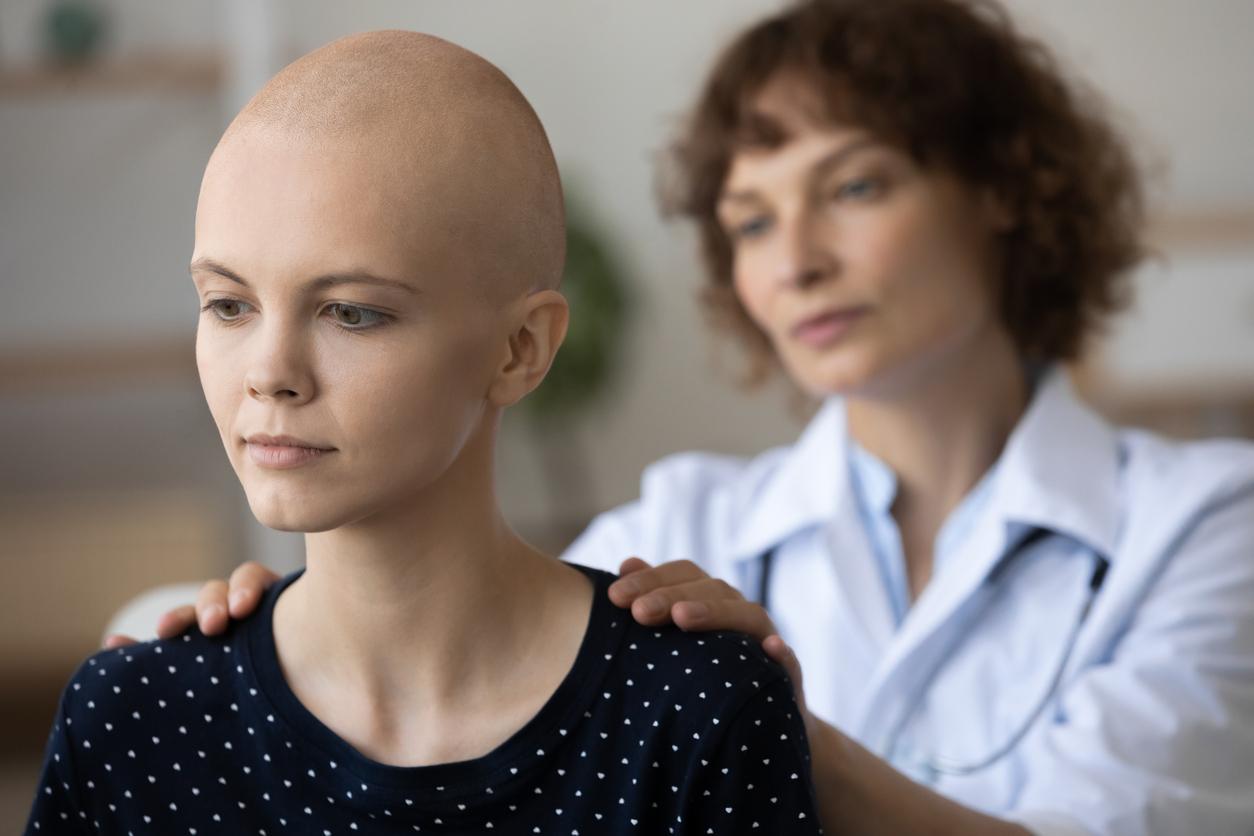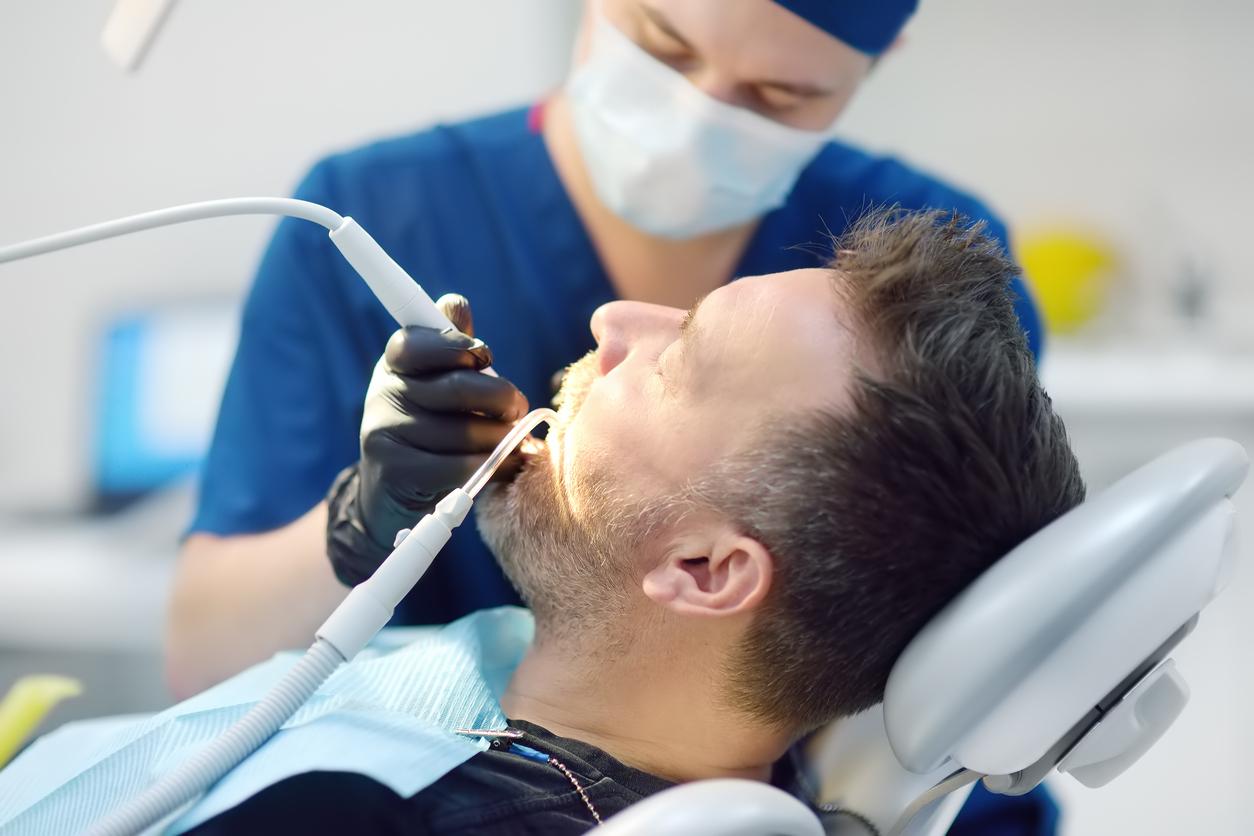Alzheimer’s is a mysterious disease. It is the unexplained appearance in the brain of protein plaques that gradually destroy neurons. If the knowledge of this neuro-degenerative disease progresses, we still do not know how to treat it: no miracle treatment comes to stop the irremediable loss of brain functions, in particular memory. Alzheimer’s is also the distress of children when the roles are reversed and they have to put everything in place to take care of their parents.
Cleaning, shopping, managing the budget and administrative tasks… Caregivers (or “near caregivers”) have many hats. The code of social action and families (Art. L. 113-1-3) considers as “carer of an elderly person (…) any relative maintaining close and stable ties with her” And “who helps him, on a regular and frequent basis, in a non-professional capacity, to perform all or part of the acts or activities of daily living“.
Currently, it is estimated that 2 million French people are caregivers of patients with Alzheimer’s disease: 56% of them are women, 60% have a professional activity, more than 50% live in a household that earns less than 2700 euros net per month, and more than 50% have been “caregivers” for (at least) 2 years. If the caregiver is often a member of the family, he can also be a friend, a neighbor…
Being a helper is nothing out of the ordinary. According to the Haute Autorité de Santé (HAS), caregivers have a higher risk of developing depressive disorders, sleep disorders and cardiovascular diseases. Thus, in 2020, 16% of caregivers declared having observed a “deterioration of their health” in the past two years, and 6% used medication for anxiety and/or depression daily.
The Covid-19 epidemic has only aggravated the suffering of caregivers. In a column published on Tuesday March 30, 2021 by our colleagues from Parisian6 carers of people affected by Alzheimer’s disease (or a related disease) recounted their daily lives and called for help:
“We have seen our loved ones plunge more quickly, too quickly, into illness. Despite our dedication, we watched helplessly as their cognitive and motor skills deteriorated. (…) We took an alley parallel to [cette dégradation]. That of moral and physical exhaustion, already very real before the health crisis. This crisis has increased our anxiety and our difficulties tenfold since the structures temporarily taking care of our loved ones living at home and thus allowing us to breathe have long been closed.“
Alzheimer’s disease: I am a carer, who should I contact?
According to associations, caregivers of patients with Alzheimer’s disease (or a related disease) have two main needs: the first is a need of information – it is a question of understanding the disease, knowing its symptoms or even knowing how to best react to certain complicated situations (refusal to take medication, for example).
The second is a need to take time for yourself – to reduce stress, of course, but also to preserve mental and physical health, at a time when 65% of caregivers suffer from a significant lack of energy, 37% from persistent sadness and 41% from a loss of daily pleasure…
To meet these two needs, the Caisse Nationale de Solidarité pour l’Autonomie (CNSA) offers a directory which lists local information points (to learn about Alzheimer’s disease: its symptoms, its evolution, its treatments, its causes, its risk factors…) but also support and respite platforms.
These ensure thetemporary physical, emotional and social support for a person with a loss of autonomy in order to provide relief to their main carer“: very concretely, they offer day care, respite at home, rehabilitation workshops, meetings with caregivers, as well as social and cultural activities.
And also… THE departmental associations France Alzheimer offer 100% free training for caregivers who regularly accompany a person with Alzheimer’s disease (or a related disease). These training sessions consist of 5 to 6 sessions (14 hours on average) and are led by experienced psychologists and volunteers. In times of Covid-19 (but not only), they are also available online.
Alzheimer’s disease: I am a caregiver, what are my rights?
- Full pension from age 65 for caregivers. According to the France Alzheimer Association, “employees who have interrupted their professional activity to take care of a disabled person as a family carer or third party can, since the law of 9 November 2010 reforming pensions, benefit from a full pension at 65 years, compared to 67 years for the other insured“. More info and conditions by clicking here.
- Caregiver leave. “Family caregivers in professional activity are entitled to caregiver leave (former family support leave, replaced in 2017) which allows any employee to temporarily interrupt their professional activity to take care of a person with a disability. or loss of autonomy.This leave, which cannot be refused by the employer, concerns carers who live with the sick person: it is however not paid. More info and conditions by clicking here.
- Family solidarity leave. Also called “end-of-life leave”, family solidarity leave is for a maximum of 3 months, renewable once. He “allows to assist a loved one suffering from a pathology involving the vital prognosis or being in the advanced or terminal phase of a serious and incurable condition, whatever the cause“. More info and conditions by clicking here.
And also… The law relating to the adaptation of society to aging of December 28, 2015 established the concept of “right to respite for the carer”. This allows, under certain conditions, access to an envelope of 500 euros to use respite arrangements for the person being helped (day care, temporary accommodation or home help). click here for more information.
To see on Téva this April 27: “Alzheimer my mother forgets me”
This documentary directed by Aymone de Chantérac tells the daily life of patients and their relatives, but also the unconditional love that unites them. Thus, for the first time, Simone Veil’s sons agree to talk about their mother’s illness, affected by Alzheimer’s. In Marseille, Monique, aged 72, was diagnosed at 68 and her illness was dazzling. Formerly a representative of a major cosmetics brand, she has lost all autonomy and now lives in an nursing home. Eva, her granddaughter, is getting married soon. Impossible to live this unforgettable moment without her darling grandmother, whom she knew radiant.
In Cahors, Marie and Aude try to make their mother aware of what is happening to her: Marie-Christine is 69 years old and she was her students’ favorite university professor. Her daughters have organized everything so that she can stay at home as long as possible. But like all families faced with Alzheimer’s, they are going through this terrible ordeal that psychologists call white mourning: saying goodbye to the wife and mother that was Marie-Christine.
Finally, in Dax, the Alzheimer’s village offers innovative care for the disease. The caregivers do not wear white coats and the residents live there at 4 or 5 in single-storey houses, without closed doors, as if they were still at home. Inspired by a Dutch model, this village can accommodate 120 patients. They are mostly elderly patients, but six of them are under 60 years old. This experimental structure is unique in France.
“Alzheimer, my mother forgets me”, a documentary broadcast Tuesday April 27 at 10:40 p.m. on Téva.
Sources:
- Mederic Alzheimer Foundation
- High Authority for Health (HAS)
- France Alzheimer Association
- Health Insurance
Read also :
- Testimonials: how to support a sick loved one
- Video: caregivers are also Alzheimer’s patients
- Alzheimer’s disease does not always start with memory lapses


















